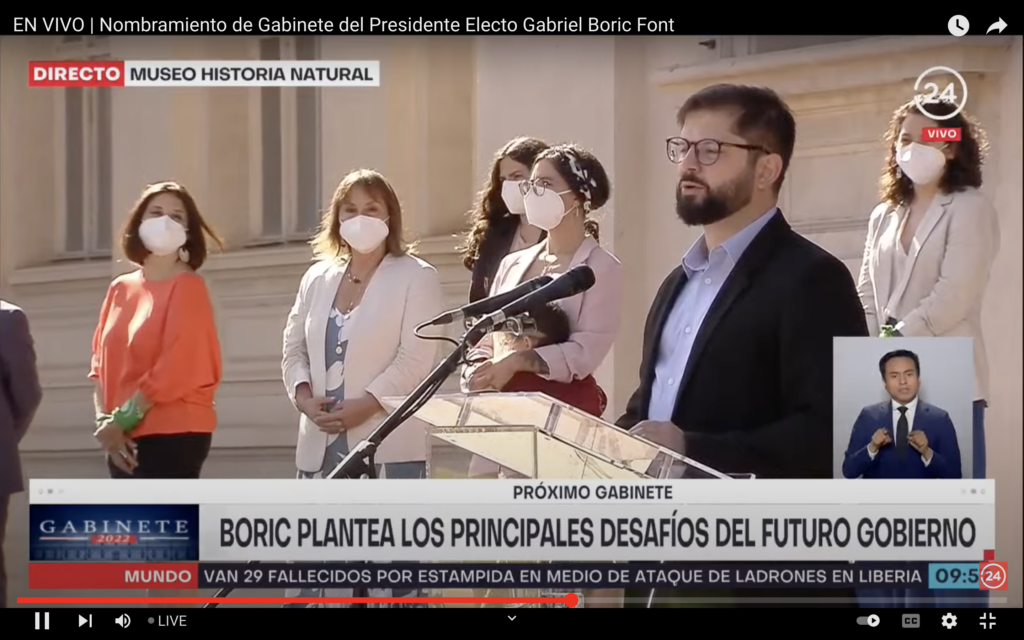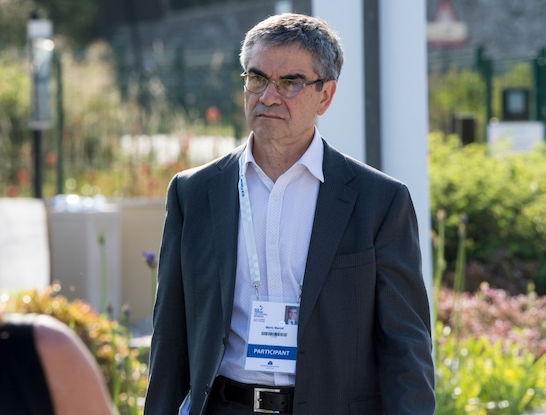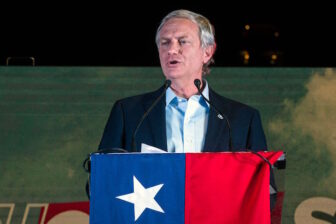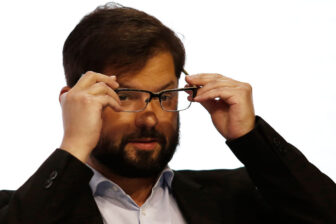On Jan. 21, Chilean President-elect Gabriel Boric presented the members of his cabinet. Among the most highly-anticipated positions was that of the finance minister, a post that went to current head of the Central Bank Mario Marcel. Chilean markets rallied after the announcement, indicating the private sector’s relief with an economist known for fiscal responsibility as the head of the finance ministry.
AQ asked observers to share their reaction to the choice of Marcel and their thoughts on what lies ahead for the Boric administration.
Isabel Aninat, dean of the law school at Adolfo Ibáñez University and director of the Chilean Society for Public Policy:
I think it shows a very good signal from President-elect Boric in terms of his commitment to fiscal responsibility. He has said so in his speeches in recent weeks, but with Marcel in this office, it shows very clearly that Boric is committed to what he has stated.
Marcel has shown, especially over the last few years as president of the Central Bank, a very strong commitment to fiscal responsibility, but also not afraid to express opinions even when they are unpopular. We saw that very clearly with the withdrawal of the pension funds that were discussed and in many cases approved over the last few years during the pandemic. At times, he has been very vocal against the political majority. I think that’s why he is a great name for the office he has been named to. Marcel also knows the ministry very well – he was the head of Chile’s budget office within the finance ministry for several years.
Over the next few months, we should keep an eye on the political ministries that work closely with the president and are located in La Moneda. I think we will probably observe some tension between the political ministries and the finance ministry. This is a very important question as we enter economic discussions: Who will have more weight over these decisions? We have seen this before: It was very clear, for example, in the second government of President Bachelet, when Minister of Finance Rodrigo Valdés faced this tension, and then he resigned. That is one thing to watch: The relationship between Mario Marcel and the rest of the cabinet, especially the political ministries.
Brian Winter, editor-in-chief of Americas Quarterly:
There’s tremendous relief about Chile on Wall Street today. And the people who spent 2021 insisting that Gabriel Boric was the second coming of Nicolás Maduro have egg on their faces. As I wrote in December, Boric’s model is Sweden or France, not Venezuela.
We should still expect a left-of-center government, of course. Boric has a mandate for change, and he will likely do things in the pension and mining sectors, for example, that business won’t like. The new Constitution could still chart out a more radical course. The size of the Chilean state will grow.
But this pluralistic Cabinet, especially the appointment of Marcel, is a huge signal. It means at least some elements of Chile’s post-1990 macroeconomic framework will remain in place. You could say that Boric found his version of Antonio Palocci, the Brazilian finance minister whom Luiz Inácio Lula da Silva appointed in his first term, in 2003. Naming a safe pair of hands to maintain macro and fiscal stability allowed Lula to avoid a market panic – and eventually gave him the resources to accomplish his progressive goals.
There’s another potential parallel: Lula’s shift to the center angered part of his base, leading to the creation of the hard-left PSOL party. You have to wonder if Boric will face a similar backlash, especially among the Communists. Balancing Chileans’ demand for change, while keeping the economy strong, will remain a tremendous challenge.

Robert L. Funk, professor of political science at the University of Chile and a partner in Andes Risk Group, a political consultancy firm:
Although much of the attention has been focused on the Minister of Finance, the truth is that for the incoming Gabriel Boric government, made up of a coalition of new parties and movements, the composition of the entire cabinet was bound to tell us much about where Boric seeks to take the country. And it turns out, he seeks to take it forward, slowly, and responsibly.
After coming in second to the far-right candidate José Antonio Kast in the first round, the election results seemingly showed then-candidate Boric that the country was not quite as enthusiastic for revolution, even a democratic one, as one might have interpreted from the protests of 2019. Moreover, the economic hangover of two years of first protest and then pandemic poured a dose of reality on the country’s capacity to afford the long list of campaign promises (and whatever else might emerge from the ongoing constitutional convention). The key word would now be “transformation”.
Boric’s cabinet reflects this new attitude. Starting with the naming of Mario Marcel, the current president of the Central Bank, to the Finance Ministry, Boric’s choices for the most part reflect the desire to implement change that is real, profound, but also pragmatic and technical. There is little sign of political idealism or ideology in this cabinet. The Communist Party, which had prided itself as the largest party within the coalition, plays a minor role (except for Camila Vallejo, the new government spokesperson). Boric’s Minister of Foreign Affairs Antonia Urrejola pulled no punches in being critical of the region’s human rights abusers such as Nicaragua and Cuba as president of the OAS’ Inter-American Commission on Human Rights.
For the time being the market reaction has been extraordinarily positive, yet most of the risks have not really changed. The country’s economic outlook remains bleak, the demands for change are still there, and the constituent assembly continues to draw up its wish list of social and political rights. But for now, Boric has done much to smooth the rough edges of the transition.
Patricio Navia, professor of liberal studies at NYU and professor of political science at Diego Portales University in Chile:
While the appointment of Mario Marcel as the finance minister is reassuring for markets and definitely a move in the right direction, there is some bad news in the composition of the cabinet as well. The cabinet is comprised of several independents and many people without much political experience. That will generate tensions and unforced errors when the government takes office in March. It is refreshing to have many new faces, but the absence of party militants and people with legislative and government experience will test the ability of the cabinet to tackle some pending and urgent problems right away.
One of the key issues, public security, will be a challenge for the new Interior Minister and the chief of the cabinet, Izkia Siches. The 35-year-old physician has no prior government experience and is not affiliated with any political party. Since her job will be to coordinate the police forces, lead the response to the Mapuche conflict in the Araucanía region and provide political leadership to the cabinet, her lack of previous experience will be a problem.
Rather than appointing a cabinet that reflected diversity in multiple dimensions, the cabinet is comprised mostly of people who share President-elect Boric’s strengths and weaknesses. It would have been better to have a more balanced group of people who are young and fresh like Boric and experienced and seasoned in politics and government like Mario Marcel.







